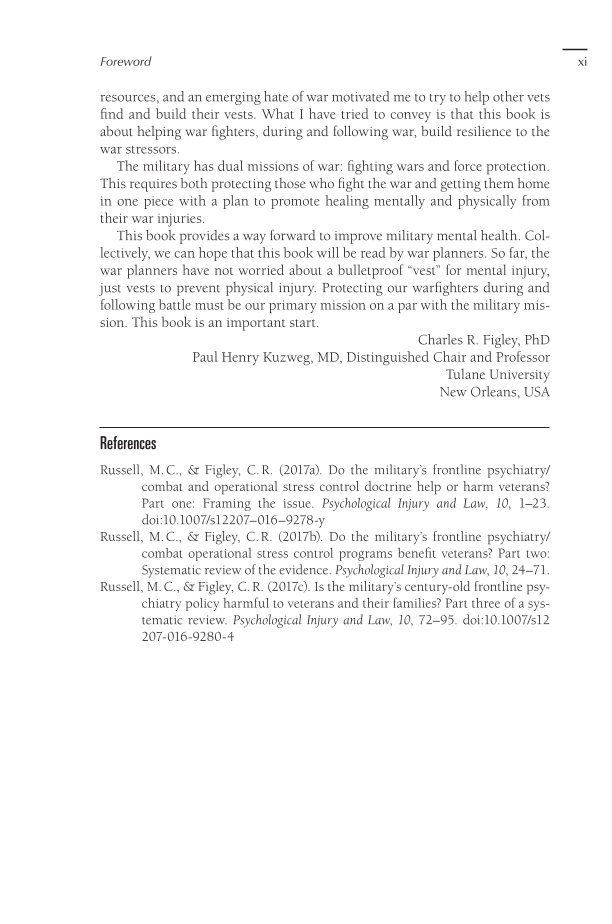Foreword xi resources, and an emerging hate of war motivated me to try to help other vets find and build their vests. What I have tried to convey is that this book is about helping war fighters, during and following war, build resilience to the war stressors. The military has dual missions of war: fighting wars and force protection. This requires both protecting those who fight the war and getting them home in one piece with a plan to promote healing mentally and physically from their war injuries. This book provides a way forward to improve military mental health. Col- lectively, we can hope that this book will be read by war planners. So far, the war planners have not worried about a bulletproof “vest” for mental injury, just vests to prevent physical injury. Protecting our warfighters during and following battle must be our primary mission on a par with the military mis- sion. This book is an important start. Charles R. Figley, PhD Paul Henry Kuzweg, MD, Distinguished Chair and Professor Tulane University New Orleans, USA References Russell, M. C., & Figley, C. R. (2017a). Do the military’s frontline psychiatry/ combat and operational stress control doctrine help or harm veterans? Part one: Framing the issue. Psychological Injury and Law, 10, 1–23. doi:10.1007/s12207–016–9278-y Russell, M. C., & Figley, C. R. (2017b). Do the military’s frontline psychiatry/ combat operational stress control programs benefit veterans? Part two: Systematic review of the evidence. Psychological Injury and Law, 10, 24–71. Russell, M. C., & Figley, C. R. (2017c). Is the military’s century-old frontline psy- chiatry policy harmful to veterans and their families? Part three of a sys- tematic review. Psychological Injury and Law, 10, 72–95. doi:10.1007/s12 207-016-9280-4
Document Details My Account Print multiple pages
Print
You have printed 0 times in the last 24 hours.
Your print count will reset on at .
You may print 0 more time(s) before then.
You may print a maximum of 0 pages at a time.































































































































































































































































































